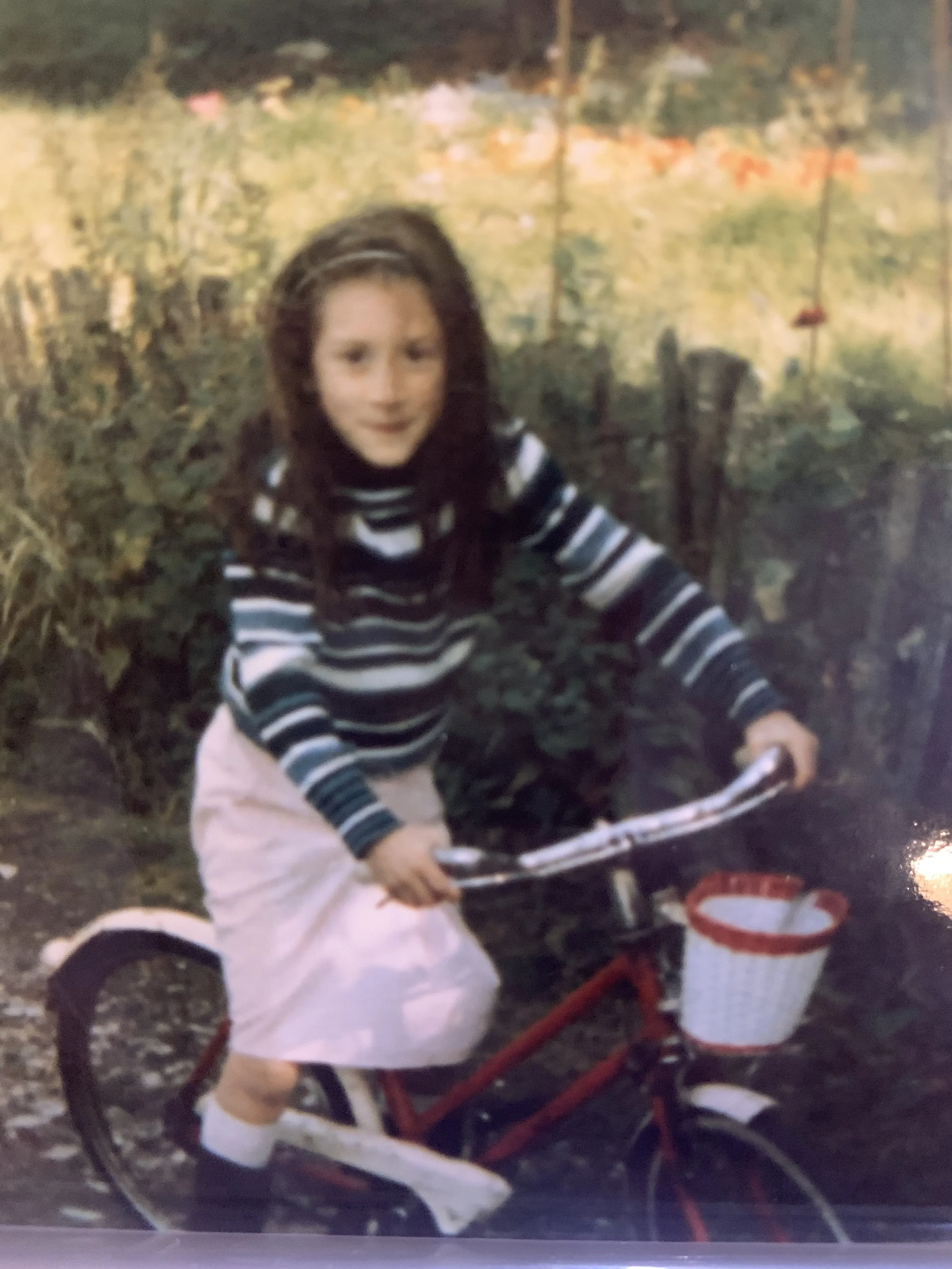Embracing our differences!
Have you ever felt like a square peg unable to fit into the round hole of life’s expectations?
I have recently been going through the assessment process for ADHD (if you’re interested please let me know and I will write about that in a separate blog). I can honestly say that it has been a transformational journey of discovery for me.
How it all started…
When I was a kid, one of the nicknames I had was “fiddle fingers” because I was always playing with something… the frayed edge of a piece of fabric, making a sculpture in my food, twiddling bits of jewellery or tapping my feet. At school I was teased for being a bit different. From the outside I was seemingly happy… pottering around on my own, but in reality I was painfully lonely. The comments from well-meaning grown-ups who tried to show me how I “should” behave quickly felt like criticisms and judgments… which was confusing because I knew they came from a good place.
So, the only conclusion my teenage brain could come up with was… that I was not good enough and all the things that were “wrong” were all my fault.
Little Emma “Seemingly happy” on the outside!
As a result, I started a lifetime obsession of trying to “fit in”… I copied people’s accents, I studied super hard, I tried to comply with the rules… but all that it succeeded in doing was turning me into an obsessive people-pleaser and wanna-be perfectionist… I was a child who was not being true to herself and who thought that all the mistakes in her life were “her fault”. Over the years my overthinking brain has got in the way of work, relationships, career moves, parenting… you name it, there has been a knock-on effect. Sometimes it was so mild I barely noticed it, other times it was a waterfall of feelings that could lead to rumination and self-sabotage.
This may all sound like a first world problem, but in my little world bubble it resulted in a huge amount of small-T trauma. Little hits at my confidence, brief moments of feeling overlooked… all seemly harmless, but when they happened frequently, every day, every week and every year… it sent my brain into an unhealthy overdrive. But, it also taught me one skill that I am forever grateful for… the ability to disassociate. When things get really emotional, I can shut down my high-speed brain, focus on the problem and get going with action to help solve problems pretty much straight away. I’m a good person to have around in an emergency, there’s no drama from me… just a quick evaluation, followed by action trying to help and resolve the issue. The personal processing comes later, when the danger is a distant memory, but it is often accompanied by an emotional crash.
Our unique family…
It turns out that we’re a neurodiverse family… an interesting mix of unique superpowers. At times the combination doesn’t mix well, but at other times we complement each other perfectly!
Thriving on “spontaneity, difference & diversity”
But, the message I want to share with you is what I got from my diagnosis… some understanding of my quirky brain… and the knowledge that what makes me different is exactly what gives me my superpowers…
I have always known that I thrive on surprises, spontaneity, difference and diversity 😂! I find “normal” doesn’t flick my switch. I need variety to thrive, yet when there is too much going on I get overwhelmed… afterall, life is a balance. But, by understanding how my brain works, acknowledging the different ways I do things and having compassion for what overwhelms me… has finally helped me find some self-compassion. Plus, I am now better able to mitigate things that previously I struggled with… and, sometimes, I have laugh with my kids about it... instead of calling me to ask me to remember to collect them, my kids now call me and ask me to set an Alexa reminder to remind me to leave the house at the right time!
So what are the key traits of my beautifully quirky brain that makes me so uniquely Me?! Here are some that I have discovered so far:
Time blindness: I think I’m a time wizard… I try to cram far too much into a far too short amount of time… that used to lead to me running late for most things, plus a good dose of overwhelm and disappointment. I’m now on a learning journey that I have poor executive functioning and I need to metaphorically hold my own hand and challenge whether (when I think about realistic facts about travel time, fudge factor etc) my seemingly impressive time goals are actually realistically possible!
Hyper focus: When a topic grabs my interest… it seriously grabs my interest, to the exclusion of all else. The kids dinner gets burned, or sometimes I realise I haven’t even started cooking it, food doesn’t get made or eaten. I even forget to go to the loo and am only reminded when I’m physically feeling pain. And, unhelpfully for relationships, hyper focus can be on a person… wondering where they are, what they are up to and why they haven’t instantly responded to me. But, this skill can be a huge super-power when it’s directed onto the right thing… I can get a huge amount of work done, move the needle on projects, provide huge amounts of love and TLC in relationships, and shut myself off from the distracting world around me. It’s amazing when it’s directed at trying to help others sort their Sadmin out and I have a LOT of love to give!
Shiny things syndrome: Years before I even wondered if I had ADHD I used to say I suffered with what I called “Shiny things syndrome” (I don’t think it is the formal name, ‘cos it’s a label I created!)… I’ll get into the middle of a project and suddenly a million and one other creative ideas come out of the left-field of my brain and distract me. Suddenly the original project gets neglected and I’m off dreaming about the next big adventure. Once again, when harnessed correctly (and with some neuro-typical help to keep me on track!), this is an amazingly creative quality that has led to some of my best ideas.
Task Avoidance: I seriously thought I was lazy… what I called the “dull jobs” just never seemed to get done, yet I was constantly busy and frequently risking burnout. I now realise that once again the quirky brain has the answer… the dull jobs just don’t give me the dopamine and adrenaline hits that I thrive on. So, now I know the problem, I’ve found the answer… I gameify the things I previously struggled with… I listen to podcasts whilst folding laundry, washing up, tidying and cleaning. I have also reframed how I see those jobs… they are a necessary part of looking after the home and family members that I love… so doing them is an expression of my love.
Rejection sensitivity: Now, I’ve been told that this is not a symptom of ADHD, more of a consequence of continually feeling “not good enough”… but, what I want you to understand is the extent of the sensitivity… I actually feel the rejection in my body… my tummy turns in somersaults, my heart races, my palms sweat and when it’s really bad I’m unable to work or concentrate… all because I feel that I’ve done something wrong and therefore I will be abandoned. The biggest cure for this is not to abandon myself, and to celebrate the times that loved ones don’t abandon me either… this is all part of the self compassion that is part of my diagnosis discovery but this is probably the most crippling part of my quirky life.
So, there we go, a little look into things I used to beat myself up about. I have found that… with a bit of knowledge, lots of personal reflections, some amazing coaching, therapy, friends and family… it is possible to do an amazing reframe. All those differences that I used to beat myself up about, that I used to feel were illustrations of not being worthy… they might set me apart from some people, but they are things that I am now seeing as superpowers!
“It is possible to do an amazing reframe”
However, it’s not all rose-tinted glasses and, although many people will be able to relate to a lot in this article, it’s my belief that this all becomes a disorder when it affects day-to-day life… for me this means emotional out-bursts at loved ones, inability to work (sometimes for whole days at a time), feelings that are so strong that they affect me physically and result in GP appointments to try to find the source of serious physical health problems. I wonder if the seemingly everyday symptoms above become a disability when they negatively impact on our ability to succeed at work, relationships and day-to-day life.
Seeing my own transformation, I am curious that if we talk more about neurodiversity, the struggles and the superpowers… we might be able to help others seek support and find the superpowers in their own differences. I hope that the signposts get better highlighted because I truly believe that when we learn to embrace and love our differences we can find an more contented path to happiness. I know that there are many who don’t want or need a label, but for me it has been a true relief to finally be told why I have struggled for so much of my life.
If this has resonated with you, please drop me an email and let me know: emma@rainbowhunting.co.uk.
Disclaimer: just because you relate to the experiences in this blog, it does not necessarily mean you have ADHD and this article does not speak for all ADHD people. Every neurodiverse person is wonderfully unique. Please do your own research about the diagnostic criteria of ADHD. I am not a diagnostician, instead I’m an ADHD woman who was diagnosed late and is seeking to connect with the ADHD community.



